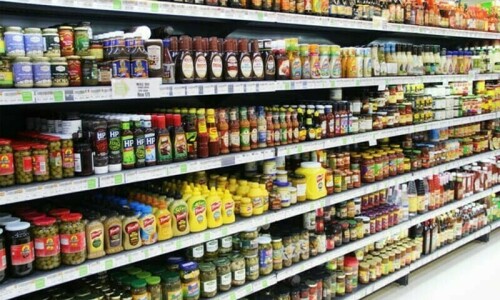KARACHI: Unlike foreign sales of soft drinks, mineral water, and fast food, which have been negatively impacted by consumer boycotts in response to the massacre of thousands of Palestinians by Israeli forces over the past year, Pakistani manufacturers of essential foreign goods have not experienced significant declines.
For instance, Nestlé Pakistan’s sales for the nine months ended September 30 were Rs149.2 billion, a measly 1.3 percent decrease from Rs151 billion during the same time last year. However, the business’s profit-after-tax (PAT) decreased by 29.50 percent to Rs12.2 billion from Rs15.8 billion the year before.
According to Nestle, this decline was primarily caused by the Finance Act’s implementation of taxes that were passed on to consumers, resulting in price increases and decreased demand. Operating profit also fell as a result of obstacles like rising energy and commodity costs and increased brand investment.
Nestle will continue to focus on value chain optimization while maintaining a cautious outlook for the remainder of the year.
However, FrieslandCampina Engro Pakistan Ltd. (FCEPL)’s net sales increased 12 percent to Rs85.5 billion during the nine months ending on September 30 from Rs74 billion during the same time last year, and PAT increased to Rs2 billion from Rs1.6 billion.
According to a press release, dairy-based segment revenue increased 12 percent from total sales to Rs73.5 billion.
UHT milk, which was previously tax-free, was subject to an 18 percent sales tax as of July 1.
The imposition of a sales tax has had a significant impact on the processed milk category, resulting in a significant decrease in sales in an environment in which the average consumer’s disposable income is decreasing. Additionally, this encourages the consumption of untaxed loose milk.
The rise in PAT was fueled by higher gross margins and lower tax costs.
According to FrieslandCampina, the company will continue to adapt and respond to the changing market by providing relevant consumer offerings and tighter cost rationalizations to boost profitability and shareholder returns in light of the pressure on consumer demand.



